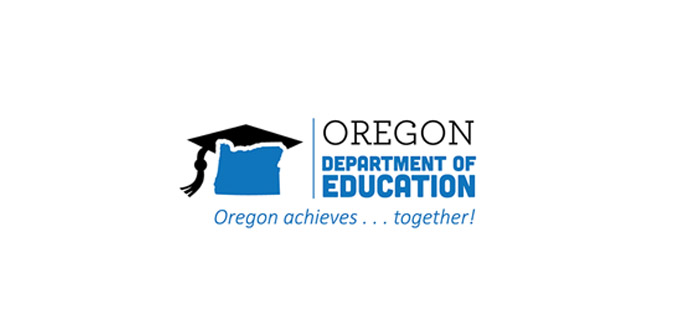The Oregon Department of Education (ODE) has released the Federal Fiscal Year 2025 list of centers and homes participating in the Child and Adult Care Food Program (CACFP).
Funded by the U.S. Department of Agriculture (USDA), the CACFP ensures that infants, children, and adults enrolled in local programs receive nutritious meals. This year, approximately 570 centers and 1,164 childcare providers across the state will be offering meals through the CACFP.
The lists of centers and homes that serve meals to participants are available on the Oregon Department of Education Child and Adult Care Food Program webpage under the Resources heading. They are refreshed weekly as new organizations join the CACFP.
Pricing Programs:
Under the CACFP, centers that charge for meals are referred to as “pricing programs.” Free or reduced-price meals are available to children meeting the approved eligibility criteria at pricing program centers.
Each enrolled participant’s family household income determines the amount of money the center will charge for meals and the amount of money the USDA will reimburse to the center for the meals and snacks provided. The income eligibility guidelines listed below are used to determine the center’s reimbursement from USDA. Centers with enrolled individuals from households whose monthly income is at or below these levels receive more reimbursement for the nutritious meals served to those participating.
Non-Pricing Programs:
Under the CACFP, non-pricing programs and homes provide meals to all individuals enrolled at no charge.
Each enrolled participant’s family household income determines the amount of money the USDA will reimburse the center or home for the meals and snacks provided. The income eligibility guidelines listed below are used to determine the center’s reimbursement from USDA. Centers and homes with enrolled individuals from households whose monthly income is at or below these levels receive more reimbursement for the nutritious meals served to those participating.
2024-25 Income Eligibility Guidelines
Effective July 1, 2024 to June 30, 2025
Participants who receive Temporary Assistance for Needy Families (TANF), Supplemental Nutrition Assistance Program (SNAP) or are Food Distribution Program on Indian Reservations (FDPIR) households are automatically eligible to receive free meals. Adult Day Care participants who are Supplemental Security Income (SSI) or Medicaid participants are automatically eligible to receive free meal benefits.
Reduced Price Meals
Participants may qualify for reduced-price meals if the household income falls at or below the limits on this chart:
| Household Size | Annual | Monthly | Twice Per Month | Every Two Weeks | Weekly |
| -1- | 27,861 | 2,322 | 1,161 | 1,072 | 536 |
| -2- | 37,814 | 3,152 | 1,576 | 1,455 | 728 |
| -3- | 47,767 | 3,981 | 1,991 | 1,838 | 919 |
| -4- | 57,720 | 4,810 | 2,405 | 2,220 | 1,110 |
| -5- | 67,673 | 5,640 | 2,820 | 2,630 | 1,302 |
| -6- | 77,626 | 6,469 | 3,235 | 2,986 | 1,493 |
| -7- | 87,579 | 7,299 | 3,650 | 3,369 | 1,685 |
| -8- | 97,532 | 8,128 | 4,064 | 3,752 | 1,876 |
| For each additional family member add |
9,953 | 830 | 415 | 383 | 192 |
Free Meals
Participants may qualify for free meals if the household income falls at or below the limits on this chart:
| Household Size | Annual | Monthly | Twice Per Month | Every Two Weeks | Weekly |
| -1- | 19,578 | 1,632 | 816 | 753 | 377 |
| -2- | 26,572 | 2,215 | 1,108 | 1,022 | 511 |
| -3- | 33,566 | 2,798 | 1,399 | 1,291 | 646 |
| -4- | 40,560 | 3,380 | 1,690 | 1,560 | 780 |
| -5- | 47,544 | 3,963 | 1,982 | 1,829 | 915 |
| -6- | 54,548 | 4,546 | 2,273 | 2,098 | 1,049 |
| -7- | 61,542 | 5,129 | 2,565 | 2,367 | 1,184 |
| -8- | 68,536 | 5,712 | 2,856 | 2,636 | 1,318 |
| For each additional family member add |
6,994 | 583 | 292 | 269 | 135 |
If you would like more information, or your organization is interested in becoming a sponsor on the CACFP, please contact Meghan Tschida, Manager, Community Nutrition at (971) 701-9004.
In accordance with federal civil rights law and U.S. Department of Agriculture (USDA) civil rights regulations and policies, this institution is prohibited from discriminating on the basis of race, color, national origin, sex (including gender identity and sexual orientation), disability, age, or reprisal or retaliation for prior civil rights activity.
Program information may be made available in languages other than English. Persons with disabilities who require alternative means of communication to obtain program information (e.g., Braille, large print, audiotape, American Sign Language), should contact the responsible state or local agency that administers the program or USDA’s TARGET Center at (202) 720-2600 (voice and TTY) or contact USDA through the Federal Relay Service at (800) 877-8339.
To file a program discrimination complaint, a Complainant should complete a Form AD-3027, USDA Program Discrimination Complaint Form which can be obtained online at: usda.gov/sites/default/files/documents/ad-3027.pdf, from any USDA office, by calling (866) 632-9992, or by writing a letter addressed to USDA. The letter must contain the complainant’s name, address, telephone number, and a written description of the alleged discriminatory action in sufficient detail to inform the Assistant Secretary for Civil Rights (ASCR) about the nature and date of an alleged civil rights violation. The completed AD-3027 form or letter must be submitted to USDA by:
- mail: U.S. Department of Agriculture Office of the Assistant Secretary for Civil Rights 1400 Independence Avenue, SW Washington, D.C. 20250-9410; or
- fax: 833-256-1665 or 202-690-7442; or
- email: Intake@usda.gov
This institution is an equal opportunity provider.



